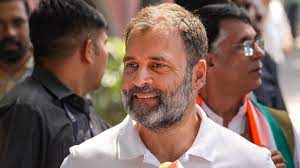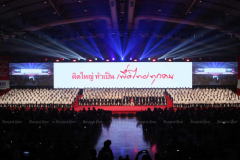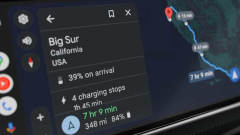Rahul Gandhi defamation case was a test case for freedom of speech (especially political arguments) – vs defamation how to do balancing act – the entire country is watching the SC proceedings.
A defamation case was brought by a Gujarat lawmaker from Modi’s Bharatiya Janata Party (BJP, Mr. Purnesh Modi. The Rahul defamation case was for an April 13, 2019, speech made by him in Kolar, Karnataka, during the campaign for the forthcoming Lok Sabha elections,
This is his reported speech in the press: “They tell you they are fighting against black money, they make you stand in a line under the sun, they take money from your pockets to put in the bank, and then you come to realise that Nirav Modi stole your money and ran away. Rs 35,000 crore out of your pockets and into his… One small question, how are the names of all these thieves ‘Modi, Modi, Modi’… Nirav Modi, Lalit Modi, Narendra Modi, and if you search a little more, aur bahut saare Modi niklenge (many more Modis will emerge).”
Speech and reputation
The Constitution of India under Article 19(2) had declared “defamation” as one among the exceptions to free speech which was thereby validated under Sections 499 and 500 (dealing with the definition and punishment of defamation cases) of the Indian Penal Code (IPC). One is accused of criminal defamation when an imputation is made with the intention to harm, or having reason to believe that it will harm, the reputation of a person. In criminal defamation, the actual harm inflicted or suffering caused is not a condition to constitute offence as intention or knowledge is sufficient. A metropolitan magistrate’s court in Surat on March 23 this year sentenced the former Congress president to two years in jail after convicting him under Indian Penal Code (IPC) sections 499 and 500 (criminal defamation).
The comment by Mr. Gandhi, “why all thieves have Modi surname” is found penal under Section 499 that makes defamatory an imputation concerning “a company or an association or collection of persons as such.” The applicability of the expression “collection of persons” to Mr. Gandhi’s remark is the fulcrum of the case. The Magistrate Court was of the opinion that people with the surname Modi or belonging to the Modi community constitute an identifiable class and pronounced the accused guilty with maximum possible sentence.
The appeal court dismissed the appeal by Rahul. So he went to Supreme Court.
Apart from the points raised in the appeal we come across few more questions that Supreme Court to consider.
1)It seems Rahul told the court that his comment was not against any community and definitely not against Purnesh Modi or any other Modi.
Did the court consider these clarifications?
2)Even if onlookers take it as a netural judgment the quantum of maximum criminal punishment of two years sentence (that only will disqualify him from MP position) for defamation for first time offence puts exclamation mark on the Gujarat lower court systems.
3) Also did the court take into account The political nature of the complaint as it is by a BJP lawmaker against a top leader of Congress – 4) The speech in 2019 was during election year and as an opposition leader 5) BJP leaders including top ones, were trying to accuse opposition leaders especially Congress leaders in more derogatory terms for many many times in public meetings, so that was the trend at that time in political circles 6)the complainant’s evidence were certified copies of three audio CDs – not any other witnesses . To further that the Court summoned Rahul’s personal presence – with that summon which is rare in defamation cases, the complainant could prove his case, so Court’s summon helped complainant in a Private defamation case 7)The categoric refusal of the Gujarat High Court to grant a stay on the conviction was premised on the “need of the hour to have purity in politics”. This observation seems to have gone against the view of the Kerala High Court which recently stayed the conviction of Mohammed Faizal, the MP of Lakshadweep, under Section 307 of the IPC (attempt to murder), after taking note of the representative nature of his office. The Court held that “on consideration of various legal and other circumstances and special features arising out of this case, this court is of the view that the case of the second petitioner [the MP] falls within the category of rare and exceptional circumstances. The ramifications of not suspending the conviction are enormous.” The question comes in our mind is that Is defamation case worse than attempt to murder? or is one of the 2 Courts reasoning is skewed. 8) A high profile case like this gives opportunity for any level of courts to ask the complainant if any legal notices was issued to correct the act of defamation by the accused. We know it is not manadatory in the relevant sections, but a recommendation by SC to Govt to this effect would bring down the number of cases and provide opportunity for parties to settle before coming to Courts. 9) The intention to defame, if it was proved in the case on the basis of any evidence, is not spelt out by the court, onlookers feel that court ignored this vital factor. 10) If at all The court considered the fact that the three Modis referred to by Rahul’s speech are not complaining to the court, but unrelated Modi is complaining – then what weightage has the court given to this fact.
Let us try to understand the Gujarat Courts from these sample news reports:
1)On 19th July 2023, Supreme Court criticised the July 1 judgment of a Single Bench of Gujarat High Court having full of “contradictions”. and quashed and set aside a Gujarat High Court order, which had directed activist Teesta Setalvad to immediately surrender in a forgery/fabrication case linked to the 2002 Gujarat riots.(Suddenly coming to our minds is The BBC video highlighting these riots when Modiji was ruling Gujarat) A Bench led by Justice B.R. Gavai said the Ms. Setalvad would continue to enjoy bail in accordance with a September 2, 2022 decision of the Supreme Court.
2)Gujarat High Court judge Justice Samir Dave, who was earlier criticised for invoking Manusmriti while hearing a plea by the father of a 16-year-old rape survivor, to medically terminate her seven-month pregnancy, on Thursday asked the lawyer if there was a ‘chance of compromise’ between the minor rape survivor and the accused.Justice Dave had made it clear that the court may not permit the termination of pregnancy if the survivor and the foetus were in good condition.
3)In May 2020 Days after a special bench of the Gujarat High Court made scathing criticism on the state’s BJP government for its inept handling of the COVID-19 crisis, the bench has abruptly been changed. In its order, Chief Justice of the Gujarat High Court Vikram Nath has now replaced the bench comprising Justices JB Pardiwala and Justice IJ Vora with a new bench comprising himself and Justice JB Pardiwala.
4)In April 2023 the Gujarat High Court overturned an order by the Central Information Commission asking the Gujarat University to produce Prime Minister Narendra Modi’s post-graduation degree.Not only that, the court imposed a cost of Rs 25,000 on Delhi Chief Minister Arvind Kejriwal, who had requested the information commission to disclose this information under the Right to Information Act.The High Court order was in sharp contrast to the information commission’s order, which said that Modi’s degrees would not be “personal information” and therefore not exempt under the Right to Information Act.This verdict by the Gujarat High Court comes after a long political tussle over Modi’s education qualifications, with his political opponents alleging that they are fabricated.
5)The Gujarat high court in August 2021 strongly criticised a sub-divisional magistrate (SDM) for passing an externment order – which prevents the person from entering a district – against a man who had called up the Godhra MLA’s son to question him about his father’s work.The high court said the SubDivisionalMagistrate “needed to be immediately shifted”, according to the Times of India, since he did not work as a custodian of the people’s trust but as custodian of a politician’s interests.





